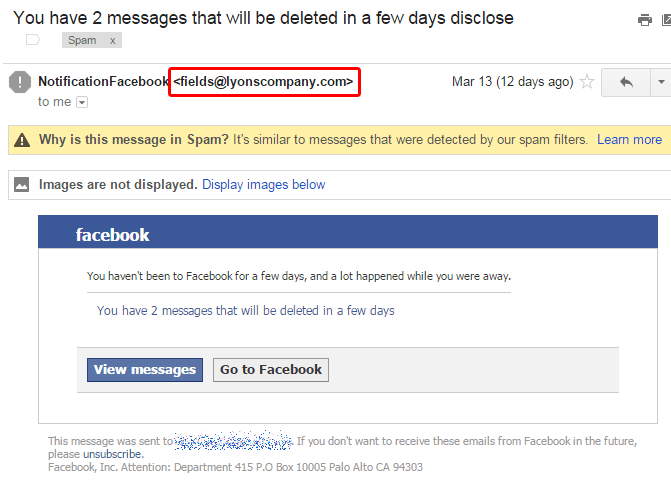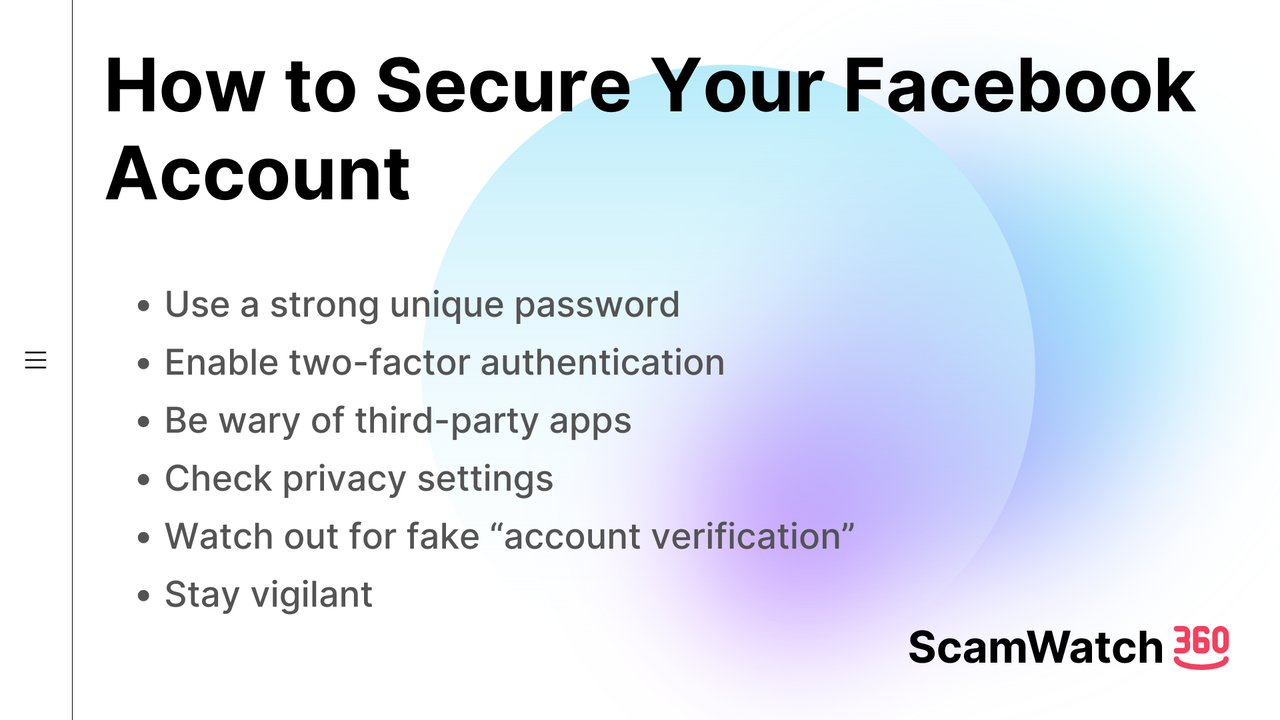
Phishing scams on Facebook are becoming increasingly common. Here is a comprehensive guide on how to identify and avoid falling victim to these scams.
Phishing is a type of online scam where criminals send fraudulent messages purporting to be from reputable companies in order to induce individuals to reveal personal information, such as passwords and credit card numbers.
On Facebook, phishing scammers may send you messages that appear to be from Facebook itself, or they may hack into your friends’ accounts and send messages from their accounts. The messages often contain shocking or enticing information to get you to click on a link or download an attachment.
Here are some tips to identify phishing scams on Facebook:
Look at the sender’s profile - Does it seem legitimate? Fake accounts often have no profile photo, friends, or previous posts.
Inspect the message - Phishing messages often have poor spelling and grammar. They try to create a sense of urgency or excitement to get you to act impulsively.
Check the link - Hover over the link to see the URL. Phishing links may be misspelled or from unfamiliar domains. Never click on shortened links.
Verify urgent requests - Phishers may claim you must verify your account or reset your password. Go directly to Facebook rather than clicking any links.
Watch for unexpected attachments - Scammers send infected files or links to download malware. Do not open attachments from untrusted sources.
Use two-factor authentication - Two-factor authentication adds an extra layer of security to your Facebook account.
 (Photo by kaspersky)
(Photo by kaspersky)
If you accidentally click on a phishing link on Facebook, here are some things that may happen:
It could download malware onto your device to steal your data and passwords.
It could trick you into entering your Facebook login details on a fake page, giving the scammers access to your account.
It could bring you to a shady website that tries to get you to enter personal information or download files.
It may seem like nothing happened, but it could allow scammers to gain access in the background.
The safest course of action is to run a malware scan if you’ve clicked on any suspicious links recently. Also change your Facebook password and enable two-factor authentication if you think your account may have been compromised.
Here are some signs that your Facebook account may have been hacked or compromised by phishing:
You notice posts, messages, or comments you didn’t write.
Your profile information like your name, birthday, or profile photo changes.
Your friends receive messages or friend requests from you that you didn’t send.
You are logged out of your account unexpectedly.
You stop receiving notifications about comments or messages on your posts.
You receive warnings from Facebook about “unusual activity” on your account.
If you notice any of these, immediately change your password and run a virus scan on your device. Also turn on login notifications so you can monitor any unauthorized access.
Here are some tips to better secure your Facebook account against phishing:
 - **Use a strong unique password** - Do not reuse passwords across multiple sites.
- **Use a strong unique password** - Do not reuse passwords across multiple sites.
Enable two-factor authentication - This requires you to enter a code from your phone when logging in from a new device.
Be wary of third-party apps - Do not authorize unfamiliar apps to access your Facebook account.
Check privacy settings - Limit the information visible to others on your profile.
Watch out for fake “account verification” - Facebook will never message you out of the blue to verify your account.
Report phishing messages - Alert Facebook to any suspicious messages so they can shut down scammers.
Stay vigilant - Be skeptical of any unusual messages, friend requests, or posts on Facebook. Verify the source before clicking.
By being cautious and keeping these tips in mind, you can avoid becoming a victim of phishing scams on Facebook. Never hesitate to contact Facebook support if you have any concerns about your account’s security.
Watch this video to learn what is phishing in general and how does it works.
Make sure to check out our other scam guides.